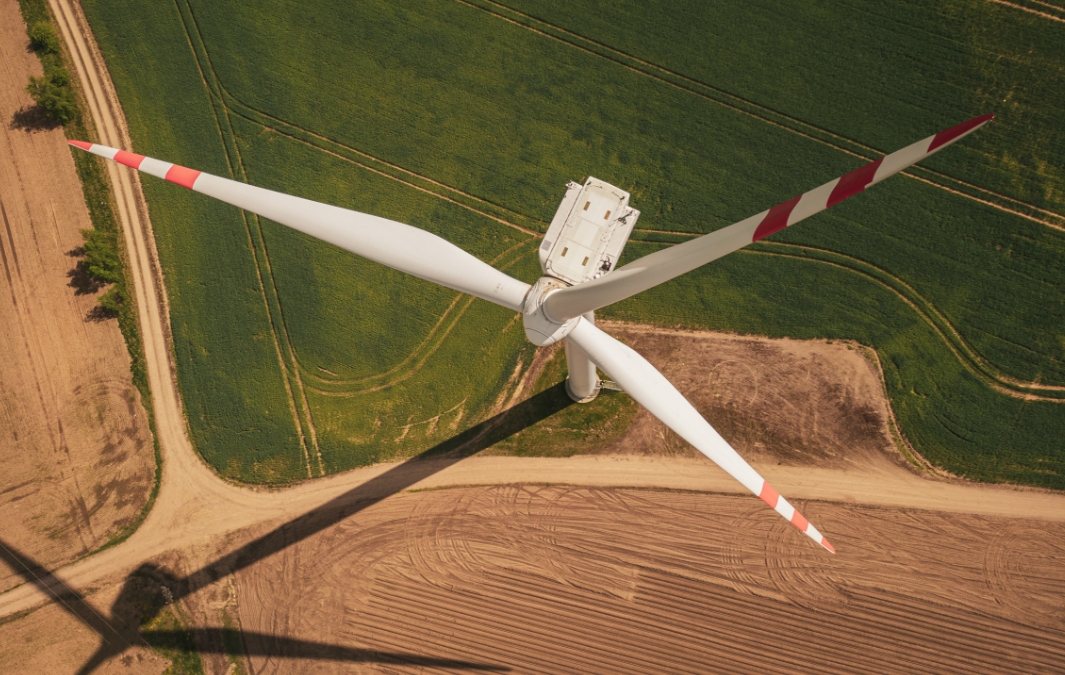Risks and opportunities associated with climate change


The PGE Capital Group is aware of the impact of its activities on the climate, as well as the risks of climate change to the Group’s operations. It is well known that our business activities both influence and depend on the climate, and this interdependence generates both risks and opportunities for growth. Therefore, stakeholders’ expectations regarding the reporting of the environmental impact of its activities are therefore understood, thus recognising climate risk management as a key element of strategic management, with a direct impact on financial aspects.
Climate risks
he PGE Group focuses on not only risks but also opportunities to ensure that it is resilient to risks and increases sustainable revenue. The PGE Capital Group has taken a number of measures aimed at achieving climate neutrality by 2050, as indicated in the PGE Group Strategy to 2030.
It also continues to work on the implementation of its ESG strategic plans, which focus on 4 areas:
Competitiveness in the financial market
Being a leader in green transformation
Corporate culture that supports sustainability
Active communication on sustainability with all stakeholders
The PGE Group also stepped up its efforts to meet regulatory requirements, both national and European. This mainly concerns the EU Taxonomy, preparation for the Corporate Sustainability Reporting Directive (CSRD), as well as the expectations of financial institutions, investors and customers.
Issues related to the climate risk are subject to rigorous requirements and guidelines resulting from the corporate risk management process. The body responsible for overseeing the PGE Group’s corporate risk management process, including the climate risk, is the Risk Committee. The establishment of the Risk Committee reporting directly to the Management Board ensures the supervision over the effectiveness of the risk management processes in the PGE Group. This positioning of the risk function allows for an independent assessment of individual risks, their impact on the PGE Group, as well as the mitigation and control of significant risks through dedicated instruments.
The assessment of climate and environmental risks is carried out on the basis of the General Procedure for Corporate Risk Management. In the PGE Group, climate-related risks are analysed both in the context of the impact of climate change on business and the impact of business on climate change. The identification and analysis of climate-related risks and continuous improvement of pro-environmental solutions as well as control tools allow for effective management and minimisation of climate impact, while taking care of the PGE Group’s financial performance. Solutions developed by the PGE Group aim to ensure its development and sustainable transformation in line with climate requirements and interests of all stakeholders.
Climate issues are assessed centrally in PGE S.A., taking into account all activities of the PGE Group and its constituent entities. This means that the result of the assessment is reported jointly at the PGE Capital Group level.
The approach to the issue of climate risks is inspired by the recommendations of the Task Force on Climate-related Financial Disclosures (TCFD); however, the method adopted for the inventory and assessment of risks is an internal PGE S.A. concept.
There is an interdependence between climate-related risks and opportunities for business. Any business is affected by two types of climate risks:
- physical risks related to the physical impacts of climate change i.e. real threats in the form of extreme weather events, drought, flooding;
- risks related to transition (i.e. transformation/transition risks) towards a low-carbon and climate-resilient economy; these relate to meeting regulatory requirements, implementing new technologies or the impact on the Company’s reputation.


At the same time, the changing climate and climate change mitigation activities aimed at mitigating and adapting to its effects provide new opportunities and chances for business development. Therefore, the PGE Capital Group focuses on not only risks but also opportunities to ensure that it is resilient to risks and increases sustainable profit.

Within the PGE Capital Group, the climate risk was defined in the following five areas:
- sourcing of aid funds and investment incentives in national regulations – related to increasing the impact of climate requirements relevant to the allocation of aid funds and investment incentives in national regulations,
- international regulations – related to EU legislation in the field of energy and climate policies, in particular under the pending Fit for 55 package,
- CO2 emissions – related to the rising cost of emission allowances, which may adversely affect the profitability of generating units or lead to the suspension of production at these units,
- operations – relating to extreme weather phenomena or changes in climate conditions that may adversely affect the assets and operations of the PGE Capital Group,
- investments – relating to the PGE Group’s potential failure to meet its investment commitments aimed at green transformation, at the EU, national and strategic goals level.
Each area of climate risks described above is assessed in the short, medium and long terms. The adopted time horizons result from analogy with ongoing external studies.
Assessment of the impact of physical climate risks on the PGE Group’s operations
Global warming, changing precipitation patterns, rising sea levels and extreme weather events are increasingly posing serious challenges to the resilience of electricity systems, thus increasing the likelihood of disruptions. Climate change directly affects every segment of the electricity system: generation potential and capacity, heating and cooling demand, the resilience of transmission and distribution networks, as well as demand patterns.

The PGE Group, being aware of the risks posed by climate change, as part of the first stage of the climate risk management process, in 2023 once again conducted an assessment of the relevant physical (material) climate risks that could have a negative impact on its operations, consequently supporting adaptation to climate change and increasing resilience to climate risks.
The assessment covered climatic factors in the form of primarily temperature, precipitation and wind as well as their negative impact on the key activities of the PGE Group.
The assessment of climate risks related to physical hazards in the PGE Capital Group in 2023 was carried out on a current basis and a long-term basis, using scientific models describing possible climate scenarios, i.e:
- RCP 4.5 – the optimistic scenario, which assumes the introduction of new technologies to achieve a higher reduction in greenhouse gas emissions than today, assuming that the increase in average global temperature will be around 2.5°C at the end of the 21st century relative to the pre-industrial era; and
- RCP 8.5 – the pessimistic scenario, which assumes a continuation of the current rate of increase in greenhouse gas emissions, on a business-as-usual basis, assuming that, by the end of the 21st century, the average global temperature will have risen by 4.5°C compared to the pre-industrial era.
The performed assessment showed a low to medium impact of risks related to physical climate hazards on the key activities of the PGE Group in 2023. According to the adopted criterion, risks whose assessment showed a high impact were tested.
An important role in the impact assessment process is played, among other things, by the implementation of adaptation measures developed in the PGE Capital Group that increase the resilience of electricity systems to climate change in the form of:
Using more weatherproof solutions in the form of a cabling programme (replacement of overhead transmission networks with cables placed in the ground)
Ensuring preventive management of key infrastructure elements affecting business continuity
Taking out insurance against events related to weather phenomena
Precisely analysing sites for new investments
Impact of transformational climate risks on the PGE Group’s operations
Transformational climate risks in the PGE Capital Group mainly concern areas affecting the transformation towards achieving climate neutrality planned by 2050, i.e. requirements and regulations applicable to existing products and services (area: policy and law), replacement of existing products and services with their low-carbon counterparts (area: technology) and stakeholder concerns/negative opinions (area: reputation). Examples of risks from these areas are listed below by category:





